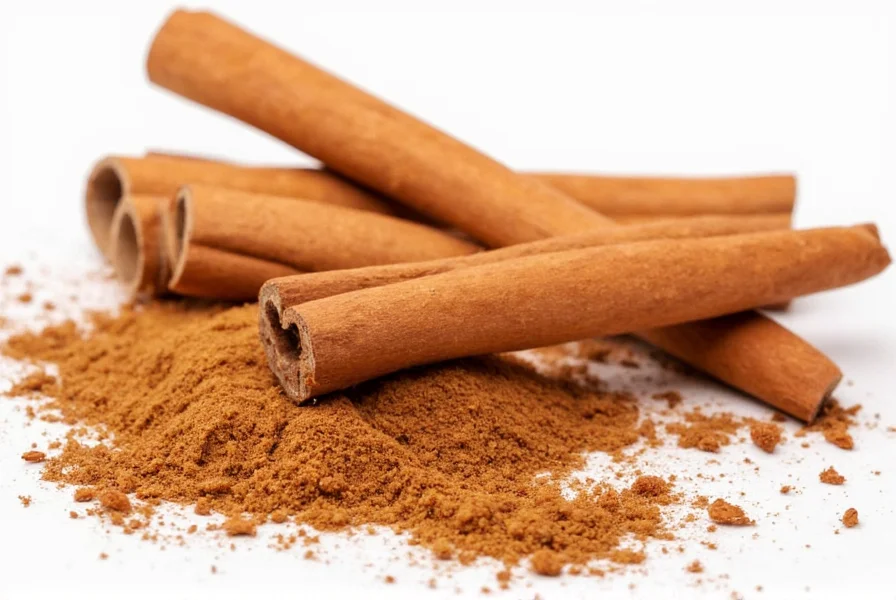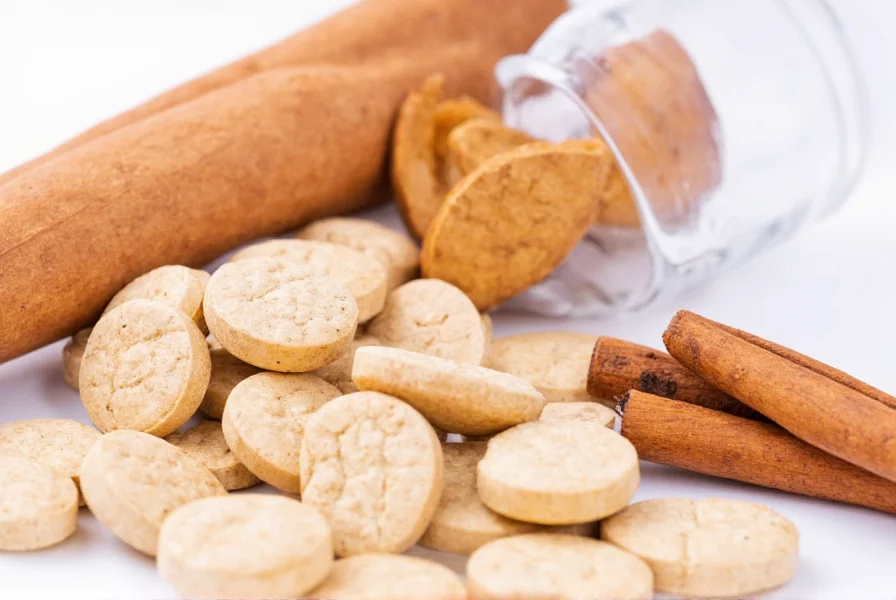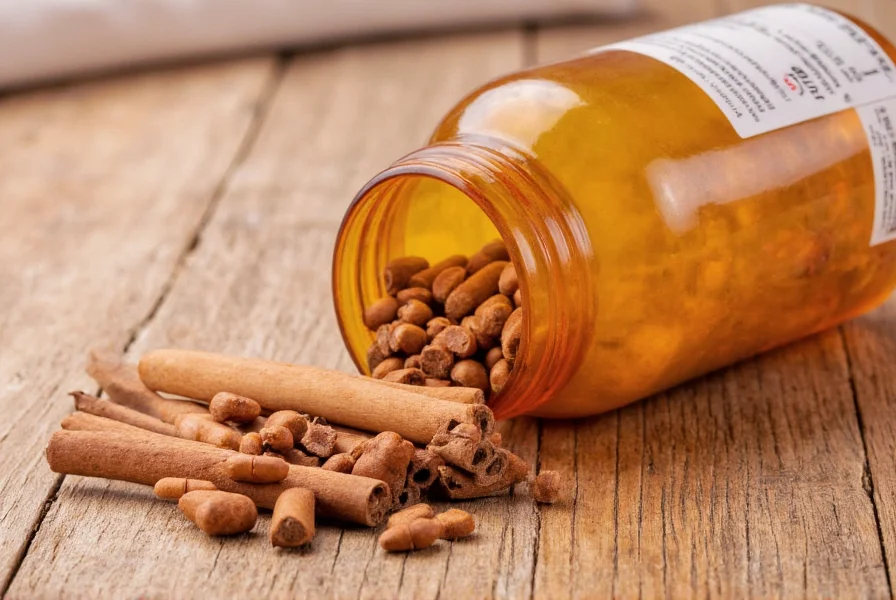Cinnamon is a popular spice with potential health benefits, but its interaction with medications requires careful consideration. Understanding these interactions is crucial for maintaining medication efficacy and preventing adverse effects, especially for individuals managing chronic health conditions.
Understanding Cinnamon Types and Their Medication Risks
Not all cinnamon is created equal when it comes to medication interactions. The two primary varieties have significantly different risk profiles:
| Cinnamon Type | Coumarin Content | Medication Interaction Risk | Common Availability |
|---|---|---|---|
| Cassia (Chinese) Cinnamon | High (2.1-6.6 mg/g) | Significant risk with blood thinners and liver medications | Most common in supermarkets (90% of US market) |
| Ceylon ("True") Cinnamon | Very Low (0.017 mg/g) | Minimal interaction risk | Specialty stores, health food markets |
The key difference lies in coumarin content—a natural compound that can cause liver damage in high doses and enhance the effects of blood-thinning medications. Cassia cinnamon contains substantially higher coumarin levels than Ceylon cinnamon, making it potentially problematic for those on certain medications.
Major Medication Categories with Cinnamon Interactions
Blood Thinners and Anticoagulants
Cinnamon medication interaction with blood thinners represents the most significant concern. Coumarin in cassia cinnamon has blood-thinning properties that can amplify the effects of medications like:
- Warfarin (Coumadin)
- Apixaban (Eliquis)
- Rivaroxaban (Xarelto)
Research published in the Journal of Dietary Supplements indicates that regular consumption of cassia cinnamon (1-2 teaspoons daily) can significantly increase INR levels in patients taking warfarin, potentially leading to dangerous bleeding events. The European Food Safety Authority recommends a maximum daily coumarin intake of 0.1 mg per kilogram of body weight.
Diabetes Medications
Cinnamon's potential blood sugar-lowering effects create important considerations for those taking diabetes medications. When combined with:
- Insulin
- Metformin
- Sulfonylureas (glipizide, glyburide)
...cinnamon may cause blood sugar to drop too low (hypoglycemia). A 2020 review in Nutrition Reviews noted that while cinnamon shows promise for blood sugar management, patients on diabetes medications should monitor glucose levels closely when consuming cinnamon supplements.

Liver-Metabolized Medications
High coumarin intake from cassia cinnamon may affect liver function and interact with medications processed by the liver's cytochrome P450 system. This includes:
- Statins for cholesterol
- Certain antidepressants
- Some cancer medications
The liver processes both coumarin and many prescription medications, potentially altering drug effectiveness. Individuals with pre-existing liver conditions should exercise particular caution with cassia cinnamon consumption.
Evidence-Based Safety Guidelines
Based on current research, here are practical recommendations for safely using cinnamon while on medication:
For Blood Thinner Users
If you take warfarin or other anticoagulants, consider these safety measures:
- Opt for Ceylon cinnamon instead of cassia
- Limited cassia consumption to less than 1/2 teaspoon daily
- Monitor INR levels more frequently when consuming cinnamon
- Inform your healthcare provider about your cinnamon intake
For Diabetes Management
Patients using diabetes medications should:
- Track blood glucose levels carefully when adding cinnamon to their diet
- Start with small amounts (1/4 teaspoon daily) to assess effects
- Never use cinnamon as a replacement for prescribed diabetes medications
- Consult with a diabetes educator about appropriate dietary integration

When to Consult Your Healthcare Provider
Certain situations warrant professional medical advice before consuming cinnamon supplements:
- You take warfarin or other blood-thinning medications
- You have liver disease or take liver-metabolized medications
- You're pregnant or breastfeeding
- You have diabetes and use insulin or other glucose-lowering medications
- You're scheduled for surgery within two weeks (due to bleeding risk)
Always disclose all supplements and dietary habits to your healthcare providers. Many patients don't realize that "natural" products like cinnamon can significantly impact medication effectiveness and safety.
Practical Integration into Your Health Routine
If you want to enjoy cinnamon's potential benefits while minimizing medication interaction risks:
- Identify which type of cinnamon you're using (Ceylon is safer for medication users)
- Limit cassia cinnamon to culinary uses rather than therapeutic doses
- Space cinnamon consumption several hours apart from medication doses
- Choose water-extracted cinnamon products which contain less coumarin
- Maintain consistent intake levels rather than sporadic high doses
Frequently Asked Questions
Can I safely take cinnamon with warfarin?
Cassia cinnamon should be avoided or strictly limited when taking warfarin due to its high coumarin content, which can increase bleeding risk. Ceylon cinnamon contains minimal coumarin and is generally safer, but you should still monitor INR levels closely and consult your healthcare provider before regular consumption.
How much cinnamon is safe to consume while on medication?
For cassia cinnamon, limit to no more than 1/2 teaspoon (approximately 1 gram) daily if you're taking medications affected by coumarin. Ceylon cinnamon is safer, with up to 1-2 teaspoons generally considered acceptable, but individual tolerance varies. Always consult your healthcare provider for personalized recommendations based on your specific medications and health conditions.
Does cinnamon affect blood sugar medication effectiveness?
Yes, cinnamon may enhance the blood sugar-lowering effects of diabetes medications like insulin, metformin, and sulfonylureas, potentially causing hypoglycemia. If you're taking these medications, monitor your blood glucose levels closely when consuming cinnamon, especially in supplement form, and discuss appropriate cinnamon intake with your healthcare provider or diabetes educator.
How can I tell if I have cassia or Ceylon cinnamon?
Cassia cinnamon typically has a darker reddish-brown color, thicker bark layers that form a single卷, and a stronger, more pungent flavor. Ceylon cinnamon is lighter tan, has multiple thin bark layers, and offers a more delicate, sweeter flavor. Check product labels carefully, as "cinnamon" without specification usually means cassia. Look for "Ceylon," "true cinnamon," or "Mexican cinnamon" for the lower-coumarin variety.
Should I stop taking my cinnamon supplements before surgery?
Yes, most healthcare providers recommend discontinuing cinnamon supplements at least 2 weeks before scheduled surgery due to potential blood-thinning effects that could increase bleeding risk during and after the procedure. This precaution applies particularly to cassia cinnamon supplements. Always disclose all supplements to your surgical team during pre-operative assessments.











 浙公网安备
33010002000092号
浙公网安备
33010002000092号 浙B2-20120091-4
浙B2-20120091-4